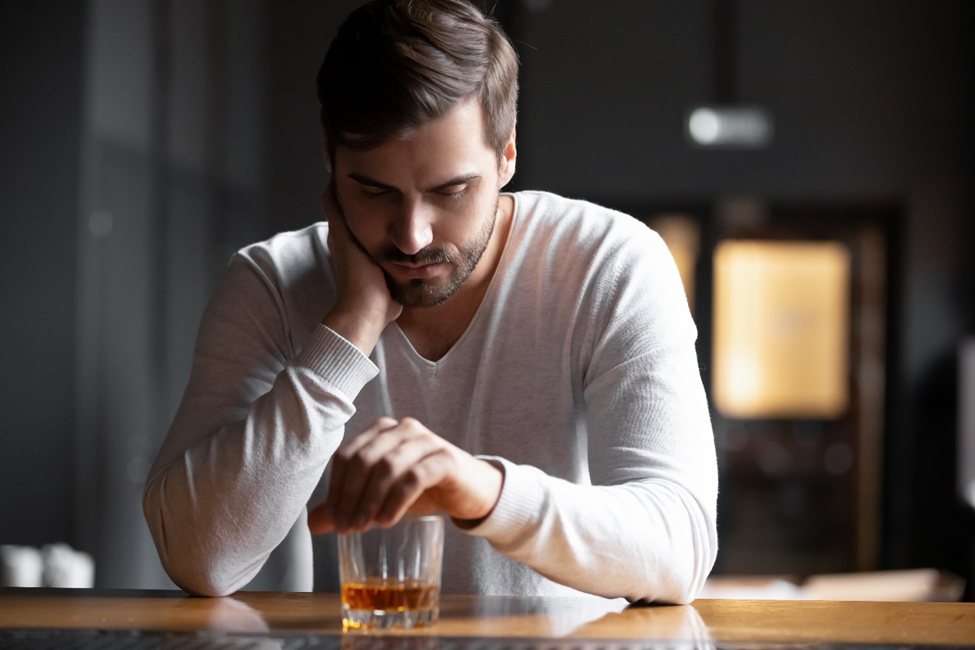
How COVID-19 Could Spark Addictions in the Coming Months
The COVID-19 pandemic has changed the lives of millions of people across the globe in different ways. Some people have been diagnosed and recovered. Others have lost loved ones. Others have been laid off work or had their businesses close entirely.
Children have had to finish out their school year at home with their parents trying to be teachers and caregivers while working remotely. Hospital workers, doctors, and EMTs have worked hours upon hours over their regular workload. What’s more, they face the constant risk of exposure and those in nursing homes have been forced to go months without seeing their loved ones.
Now, as things are slowly starting to re-open and everyone is adjusting to a “new normal,” there is a new threat that stems from COVID-19. However, this is a threat that has nothing to do with the physical damage the virus can cause.
Instead, it’s the impact the COVID-19 pandemic has had on the mental health of people all over the world, and the fact that addictions are flaring up and may continue in the months to come because of it.

Addiction: What Triggers It?
People struggle with addiction for a variety of reasons. In many cases, people use drugs or alcohol as coping mechanisms when they feel they don’t have any other option for getting help.
One of the most common relapse triggers is loneliness. Lamentably, loneliness has become a massive issue throughout this pandemic. Words like “quarantine” and “social distancing” have become extremely commonplace. Other common triggers include:
- Stress
- Emotional issues
- Social isolation
- Damaged relationships
Addictive substances and all sorts of addictive behaviors can create a physical or psychological “high” or they can give the user a sense of comfort when they are struggling to keep their hopes up. The main issue, however, is that an addiction can be very difficult to stop over time.
At the beginning, a person may feel like it’s something they’ll be able to stop quite easily or they might argue that they don’t have an addictive personality. This thinking pattern is even more common when it comes to addictive behaviors or addictions that don’t involve substances like gambling, excessive exercise and shopping.
Mental health clinics are under severe strain due to the influx of people struggling with anxiety and depression. The main focus at the beginning of this pandemic was Canada’s hospital systems and their capacity to help patients. Now, as we are rolling into the aftermath of COVID-19, we’re seeing the same type of stress on mental health clinics and we are starting to realize how many people can find treatment.
People Are Searching for Help
In April of 2020, in the thick of the pandemic, more than 20,000 people texted a help hotline run by the Substance Abuse and Mental Health Services Administration. Hotlines like these and other mental health programs throughout the country exist to help people stay away from drugs and alcohol while coping through stressful times.
Unfortunately, with so many people struggling with their anxiety and stress levels, there wasn’t and still simply isn’t enough “help” to go around.
The scariest part about that? Mental health in the wake of COVID-19 hasn’t been nearly an as discussed topic as people’s physical health. There is no governmental plan in place to help people suffering from anxiety or depression and this is especially due to COVID-19. As a result, there aren’t any existing financial aid programs, relief for mental health professionals, or even a plan in place for those who are struggling with these issues.
When people feel as though they don’t have anywhere to go, they are more likely to turn to their own coping mechanisms and this includes substance use and abuse.
Overcoming Addictions
Always remember that, even if it might feel that way, you are not alone. Support is available and a little self-help might also assist in getting you back to your old self.
Fortunately, there is some good news in light of all of this in the form of support. Telehealth has risen in popularity exponentially throughout the last several months. That includes teletherapy and mental health services that can be provided online.
Getting over addiction is different for everyone. While some people may find it to be a liberating and empowering experience, others might feel that it’s frustrating, difficult or even painful.
A good idea is to get a clear goal of what you mean to achieve and only then putting effort into achieving that goal. From there you can start by eliminating anything that you know might trigger a relapse and start focusing on things that can make your life more productive or at the very least bring back a little comfort to your life.
This is also a good opportunity to contact your close friends or family members who can support you in achieving your goals. Also, even though it might feel a little uncomfortable, take this opportunity to let the friends who participated in the addictive behavior with you that you are planning a life change. You might be surprised at people’s positive reactions.
Moreover, through your journey, you might discover a new side to yourself.
What if I Relapse?
Everyone knows that someone who puts in a lot of effort to cut down on a substance or addictive behavior or to quit it entirely wouldn’t want to fail. Nonetheless, it does happen that some people fall back into old addictive habits. The trick here is to not see it as a failure. You simply need to try until you succeed.
Try understanding why it happened. This might provide the missing puzzle piece of why you got addicted in the first place and it may help you get over the addiction completely.
Get the Help You Need
So, no matter where you are in the country, you can talk to an experienced therapist, mental health professional, or addiction specialist from the comfort of your home. While places like rehab centers and addiction treatment centers may be reaching their capacity, at least you can talk to someone in the mental health field to combat your urge to turn to drugs or alcohol.
There is little doubt that addictions will spike in the coming months. A new normal is not the same for many people, and some people have already lost so much. It’s important to start focusing more on the mental health impact of this pandemic. When we do, more efforts can be made to help those who need it most.
Don’t hesitate to contact Virtuous Circle Counselling today for addiction support.










